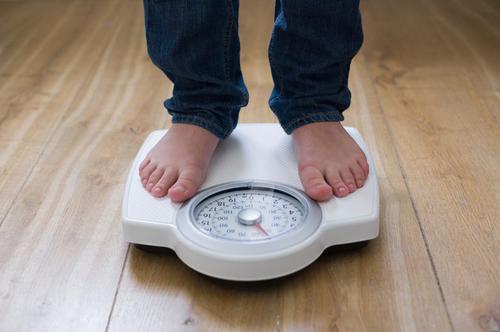Deficiency in Vitamin B12 Causes Increased Weight
Vitamin B12 is a water-soluble nutrient essential for many vital processes in our bodies: fat and protein metabolism, various neurological functions, the formation of red blood cells, and DNA production.
Long story short. B12 is an essential nutrient that you shouldn't be skimping on. There are a lot of rumors about the link between the deficiency in vitamin B12 and increased weight. But is that true?
Can Deficiency in Vitamin B12 Cause Increased Weight?
Most of the buzz surrounding the deficiency in vitamin B12 and increased weight has a lot to do with the relation between B12 intake and metabolism. Let's see how that works.
B12 is a coenzyme that helps in the production of succinyl-CoA, which is an essential enzyme in the Krebs cycle. It's the sequence of events through which our living cells generate energy for our day to day functions.
To put it simply, B12 helps to break down the energy from fats and proteins in our diet. So, a lack of vitamin B12 obstructs the harvesting of usable energy from the series of internal cycles that break down sugar, fat, protein.
Adequate levels of red blood cells and the efficient breakdown of carbohydrates are essential ways of producing more energy for the body to utilize. B12 deficiency directly affects this function, that is, when you're deficient in vitamin B12, your body is unable to produce sufficient red blood cells and is internally affected by the hurdles of metabolizing carbohydrates for energy production.
So, this brings us to the known symptoms of B12 deficiency, which are fatigue, megaloblastic anemia, dizziness, weight loss, lack of coordination, memory loss, and painful mouth or tongue sores.

From the symptoms above, you can see a link between the deficiency in B12 and increased weight: the former actually leads to weight loss instead of gain. Putting on weight may be caused by a lack of energy when the vitamin is not absorbed properly in your body and is unable to break down the carbohydrates, fats, and proteins to propel your body to perform high energy tasks. This leads you trying to eat more to get energy without knowing that you already have a lot of energy in your body.
Though B12 can help us convert fats and proteins into energy, you'd better not simply consider that it paves the way to weight loss. A lot of doctors and nutritionists say no to this assumption.
What Can Cause Deficiency in Vitamin B12?
1. Unbalanced diet
B12 can either be had as a supplement or taken in naturally by eating animal-based food like seafood, meat and poultry, dairy and eggs as well as plant-based foods like cereals, yeast, and shitake mushrooms. Now, notice the lack of plant-based sources of B12? Essentially, this means that vegetarians who don't consume a lot of dairy and vegans could be at risk for B12 deficiency.
2. Pernicious anemia
Vitamin B12 is combined with a protein called intrinsic factor in your stomach. But if you have pernicious anemia, it will cause your immune system to attack your stomach cells that produce the intrinsic factor, which means your body is unable to absorb vitamin B12.
3. Functional vitamin B12 deficiency
Some people may suffer from functional vitamin B12 deficiency. It means there's a problem with the proteins that help transport vitamin B12 between cells. Moreover, this might result in neurological complications.
4. Weak immune system
Immune system disorders like Crohn's disease (chronic inflammation of the digestive tract) and lupus (where the body develops autoimmune antibodies that attach themselves to the tissues in your body) primarily affect B12 absorption and deficiency in the long term.
Can B12 Actively Help You Lose Weight?
Essentially, B12 deficiency doesn't drastically influence your weight. The Mayo Clinic also confirms that taking B12 for weight loss isn't the right way towards fitness goals. Sure, many weight loss clinics offer B12 injections to aid weight loss, but that's because those individuals were proven to have a B12 deficiency.
So, self-diagnosing and concluding that there could be a link between weight loss and vitamin B12 is quite a shaky ground. There could be other factors like hypothyroid, ovarian cysts, and an unfavorable lifestyle that may be contributing to your sudden weight changes. B12 is just one of the essential vitamins that could be slowing down or adversely affecting the internal functions of your body. Consulting a doctor and doing a full body check up can point you in the right direction to lose weight in a healthy manner.
Take Home Message
You need to remember that there's no magic pill or supplement to help you lose weight. Often, putting on weight is as much a product of vitamin deficiencies and hormonal imbalances as an unhealthy lifestyle. Therefore, if you want to inject or take vitamin B12 for its benefits on weight loss, you'd better consult a nutritionist first. Apart from all those shortcuts, the most practical way to lose weight is to create a healthy meal plan while engaging in physical activities on a daily basis.
YOU MAY LIKE
-
Best Tips on How to Get Skinny Arms Easily
-
Natural and Healthy Ways to Lose Weight at Home
-
Best Tips to Get Rid of Bat Wings
-
How to Effectively Burn Belly Fat
-
Best Ways to Get Rid of Cellulite
-
How to Get a Flat Stomach
-
Losing Inches but Not Weight: Top Causes and Solutions
-
Best Ways to Calculate Your Muscle Mass
-
Why Can't You Lose Weight - Best Tips for You
-
Best Cardio Exercises and Tips to Remove Belly Fat
